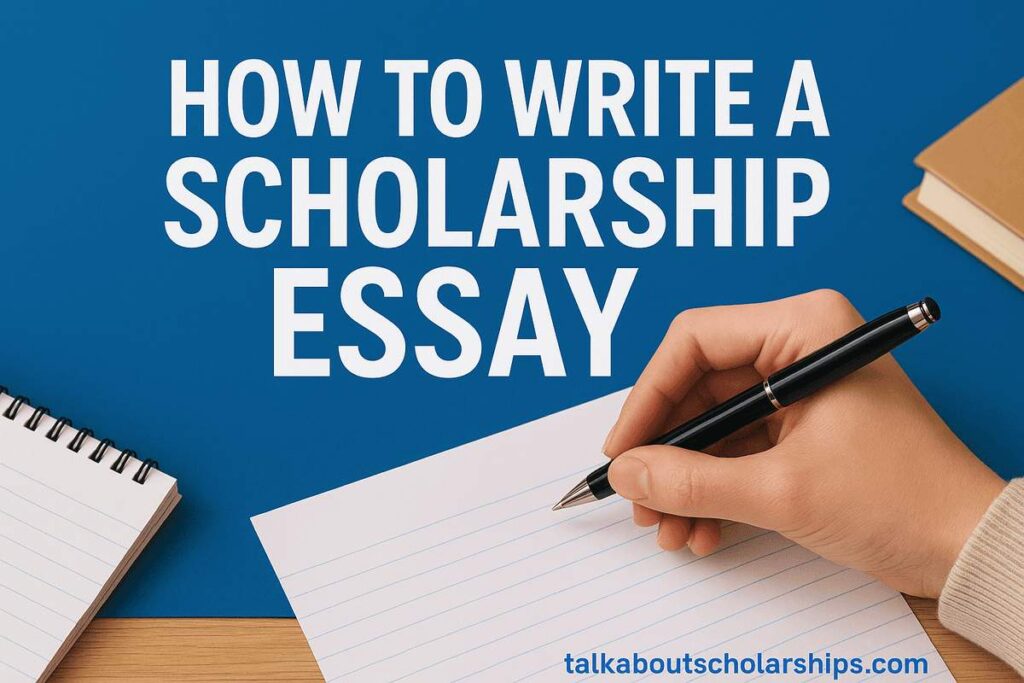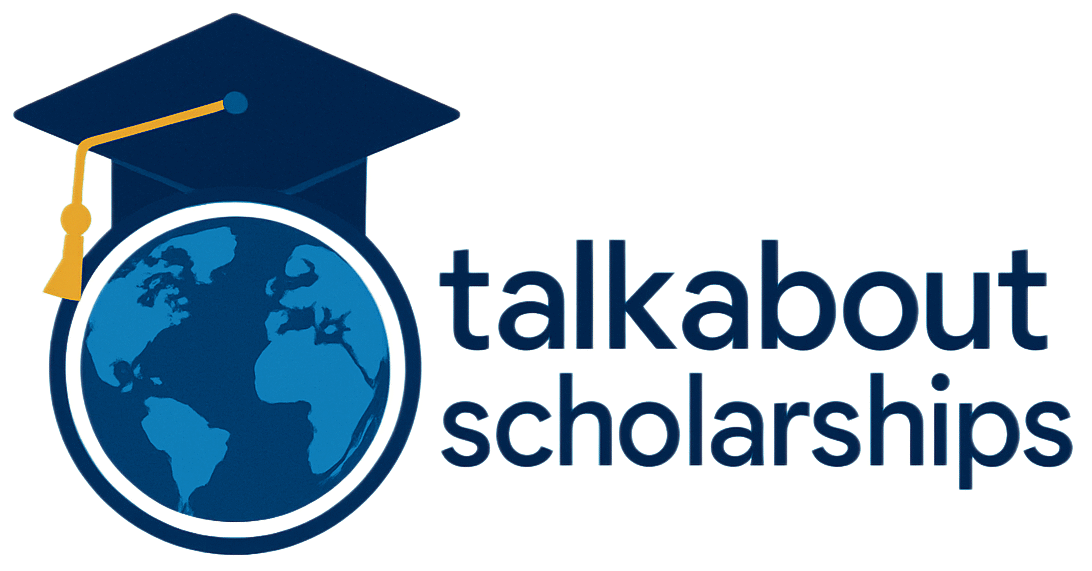
Remember that sinking feeling? You’ve found the perfect scholarship. The mission resonates, the award is life-changing, and your qualifications are a close fit. Then you see it: “Submit a 500-1000-word personal essay.” Suddenly, excitement curdles into dread. What do they want? What makes you unique among other talented applicants? I know that feeling intimately. A few years ago, I meticulously crafted what I thought was a brilliant essay, only to receive a generic rejection letter. It wasn’t until I started serving on scholarship committees myself that I truly understood the secret sauce. Learning how to write a scholarship essay isn’t just about grammar and structure; it’s about strategic storytelling that makes your application unforgettable.
Forget the myth that scholarships only go to valedictorians with perfect SATs. Selection committees, like those managing prestigious programs like the Gates Scholarship or the Coca-Cola Scholars Program, are drowning in applications from high achievers. Your essay is your extraordinary opportunity to rise above the stats. It’s your golden chance to transform from a list of accomplishments into a compelling, three-dimensional person with unique dreams and potential. An expert Dr. Rebecca Joseph point out, the essay is where “you convince the committee that you are not only worthy of the investment but that their investment in you will make a tangible difference.”
Why Your Scholarship Essay Holds Immense Power (It’s More Than Just Words)
Let’s cut through the noise. A stellar GPA and impressive extracurriculars are your ticket into the applicant pool. But once you’re there, everyone looks remarkably similar on paper. Your essay is the only part of your application that is:
- Uniquely Yours: No one else has your exact blend of experiences, perspectives, and voice.
- A Demonstration of “Fit”: It’s your primary tool to prove you deeply understand and align with the scholarship provider’s specific mission and values. Are they passionate about community service? Overcoming adversity? Leadership in a specific field? Your essay must vibrate with their heartbeat.
- A Showcase of Intangibles: Transcripts show what you’ve done so far; your essay reveals how you think, why you care, and who you are becoming. It demonstrates resilience, critical thinking, maturity, self-awareness, and communication skills – qualities far harder to quantify but equally crucial for future success as well.
- The Deciding Factor: When the final shortlist is being debated, and candidates are tied academically, it’s often the essay – the story that stuck, the passion that shone through, the clear expression of purpose – that tips the scales.
Research consistently backs this up. A National Scholarship Providers Association (NSPA) survey found that among equally qualified candidates, the personal essay was cited as the most significant factor in final selection decisions by over 70% of providers.
Laying the Foundation: Essential Pre-Writing Work (Don’t Skip This!)
Winning essays are built on solid groundwork instead of jumping straight into writing, which is the biggest mistake most applicants make.
- Deep Dive into the Scholarship Provider:
- Mission & Values: Scour their website, annual reports, and social media. What words keep appearing? What causes do they champion? What kind of impact do they want their scholars to make?
- Essay Prompt Deconstruction: What are the underlying questions? If it asks about a challenge, they likely want to see resilience and growth. If it asks about goals, they want clarity and alignment with their mission. Highlight keywords and ensure every part of your essay addresses them.
- Past Winners: Some providers showcase winning essays. Analyze them, but never plagiarize. What themes emerge? What kind of stories resonated? What tone did they strike?
- Ruthless Self-Inventory:
- Your Core Narrative: What are 2-3 defining experiences, passions, or values that truly shape who you are? Think beyond clichés. Was it the quiet persistence of mastering a difficult skill? The moment you realized the power of a specific community? Failure taught you more than success?
- Your “Why”: Why do you want this specific scholarship? How will it enable your goals? How do those goals connect back to the provider’s mission? Be specific. “To help pay for college” isn’t enough. How will their support specifically accelerate your ability to contribute to the field they care about?
- Your Unique Value Proposition: What distinct perspective, skill, or experience do you bring to the table? What makes your contribution different? Connect this directly to what the scholarship values.
- Brainstorming & Freewriting: Set a timer for 10 minutes and write anything related to the prompt and your self-inventory. Don’t edit. Look for unexpected connections, vivid sensory details, and genuine emotions. This raw material is gold.
Crafting Your Winning Narrative: The Storytelling Framework
Think like a storyteller using a modified “Hero’s Journey”:
- The “Before” (Setup): Briefly establish the context. Who were you? What was the situation?
- The Challenge/Inciting Incident: What obstacle did you face? What sparked your journey related to the prompt? (e.g., “…but it wasn’t until my school’s community garden project failed due to lack of knowledge that I felt compelled to act.”).
- The “Journey” & Struggle: What did you do? What challenges arose? What did you learn? Focus on specific actions and demonstrable growth. Show, don’t tell!
- The Insight/Transformation: What fundamental shift in understanding or perspective occurred? How did this experience shape your values or future goals? Connect this directly to the scholarship’s mission.
- The “After” & Future Vision: Where are you now because of this journey? How has it solidified your aspirations? How will this scholarship specifically enable you to continue this journey and create an impact aligned with the provider? End with forward momentum.
The STAR-L Method for Impactful Paragraphs:
A practical tool for fleshing out key experiences within your narrative:
| Element | What It Means | Scholarship Essay Focus | Example Snippet |
|---|---|---|---|
| Situation | Set the context | Briefly describe the relevant challenge or starting point | “During my internship at the underfunded city animal shelter…” |
| Task | Define your role | What responsibility or problem were you tackling? | “…I was tasked with improving adoption rates despite limited resources.” |
| Action | Detail YOUR specific steps | Focus on your initiative, decisions, and efforts (Use strong verbs!) | “I launched a social media campaign featuring ‘Pet of the Week’ videos, organized weekend adoption events with local businesses, and trained volunteers on engaging storytelling.” |
| Result | Quantify the outcome | What measurable impact did your actions have? | “Within three months, adoptions increased by 40%, and volunteer sign-ups doubled.” |
| Learning & Link | Extract the lesson & connect to scholarship | What did you learn? How does this relate to your goals/the scholarship’s mission? | “This taught me the power of creative community engagement. It solidified my desire to pursue non-profit management, directly aligning with [Scholarship Foundation]’s mission of empowering grassroots solutions to animal welfare.” |
Mastering the Mechanics: Hooks, Flow, and Polish
- The Irresistible Hook: Ditch the generic. Start in media res (in the middle of the action), with a vivid sensory detail, a surprising statement, or a compelling question directly tied to your core story. Example: “The smell of solder and burnt plastic still triggers a wave of determination, reminding me of the night my robotics team’s drive system failed – hours before the national championship.”
- Show, Don’t Tell (The Golden Rule): Instead of “I am a resilient person,” describe the moment you pushed through exhaustion to finish the project. Instead of “I care about the environment,” recount the specific experience cleaning a local river and finding something shocking that ignited your passion. Use vivid verbs and sensory details.
- Authentic Voice: Write like you speak. Avoid overly complex vocabulary meant to impress. Let your personality shine through – are you witty? Reflective? Passionately earnest? Committees read hundreds of essays; authenticity is refreshing. Essay coaching services like Prompt often emphasize voice as a key differentiator.
- Concise & Impactful Language: Every word earns its place. Ruthlessly edit fluff and vague statements. Use the active voice (“I organized the event” vs. “The event was organized by me”).
- Seamless Transitions: Guide the reader smoothly from one idea to the next. Use transitional words/phrases (However, Consequently, More importantly, This experience led me to…) or link paragraphs thematically.
- The Power of Specificity: Generalities are forgettable. Name the specific community center where you volunteered. Mention the exact research project that sparked your interest. Quote the influential teacher. Specifics build credibility and paint a clearer picture.
- Meticulous Proofreading & Editing: Typos and grammatical errors scream carelessness. This is non-negotiable.
- Read it aloud (awkward phrasing becomes obvious).
- Use spell/grammar check, but don’t rely solely on it (Grammarly or Hemingway App can help in this regard).
- Get feedback from trusted sources – teachers, mentors, counselors, even a sharp-eyed friend. Ask them: Is my main point clear? Does my passion come through? Are there any confusing parts? Does it sound like me?
- Walk away for 24-48 hours, then reread with fresh eyes.
Avoiding the Abyss: Common Scholarship Essay Pitfalls
- The Generic Application: Submitting the same essay for every scholarship without tailoring it is a recipe for rejection. Tailoring is essential to achieve success.
- The Sob Story: Overcoming hardship is powerful, but the essay must focus on how you overcame it, what you learned, and how it fuels your future – not just wallowing in the hardship itself. Committees want to invest in strength, not just sympathy at any cost.
- The Brag Fest: Listing accomplishments without context or reflection feels hollow. Connect achievements back to your growth, values, and lessons learned.
- The Vague Goal Statement: “I want to help people” or “I want to be successful” lacks direction. Be specific about your field, the problem you want to solve, and the kind of impact you aspire to make.
- Ignoring the Prompt: Answer the question they asked, not the question you wish they asked. Stay focused.
- Forgetting the “Why Them?”: Explicitly articulate how this specific scholarship is integral to your plan. Mention specific programs, resources, or aspects of their mission that resonate.
- Exceeding the Word Count: Respect the limit. It demonstrates discipline and respect for the committee’s time. If it’s 500 words, aim for 450-500 positively.
From Draft to Done: Your Essential Revision Checklist
Before hitting submit, carefully ask:
- ✅ Hook: Does the first sentence grab attention and set the tone?
- ✅ Focus: Does every paragraph serve the central narrative and directly address the prompt?
- ✅ Specificity: Have I replaced generalities with concrete details, names, and examples?
- ✅ Show vs. Tell: Have I demonstrated qualities through stories and actions?
- ✅ Authenticity: Does it sound like me? Is my unique voice and perspective clear?
- ✅ Scholarship Alignment: Have I explicitly linked my story, goals, and values to the provider’s mission? Have I articulated “Why this scholarship?”?
- ✅ “So What?” Test: Is the significance of my experiences and the impact I want to make crystal clear?
- ✅ Flow & Transitions: Does the essay move smoothly from one idea to the next?
- ✅ Conciseness: Have I eliminated all fluff, redundancy, and unnecessary words?
- ✅ Proofread: Is it free of typos, grammatical errors, and awkward phrasing? (Checked by multiple people?).
- ✅ Word Count: Am I safely within the word limit?
Your Scholarship Essay: The Bridge to Your Future
Learning how to write a scholarship essay is mastering the art of persuasive, authentic storytelling. It’s about transforming your experiences, values, and aspirations into a narrative so compelling that a selection committee can’t help but see you as not just a worthy recipient. Still, as an essential investment in the future they are striving to build. It’s challenging, deeply personal work. It requires introspection, vulnerability, and relentless revision.
But the reward? It’s not just the financial support, immense as that is. It’s the validation. It’s joining a community of scholars aligned with your passions. It’s the powerful statement that someone believes in your potential enough to invest in it. When you tell your story with clarity, strategic purpose, and deep passion, you build a bridge from where you are to where you dream of being.



